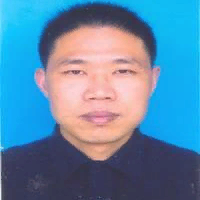International Journal of Education and Management Engineering (IJEME)
IJEME Vol. 4, No. 2, 8 Aug. 2014
Cover page and Table of Contents: PDF (size: 299KB)
Investigation and Study on the Status of the College Students with Left-Behind Experience in China
Full Text (PDF, 299KB), PP.18-28
Views: 0 Downloads: 0
Author(s)
Index Terms
Left-behind children, College students, Left-behind experience
Abstract
College students with left-behind experience are a special group and have different characteristics compared to students without left-behind experience. Based on investigation, college students with left-behind experience and interview some students around at them, this paper analyzed the basic situations of the college students with left-behind experience, as well as the key factors leading to these situations. Finally, the corresponding suggestions and expectations to improve the situations are put forward.
Cite This Paper
Zhang Yong, Jiang Wulina, Xiang Yunbo,"Investigation and Study on the Status of the College Students with Left-Behind Experience in China", IJEME, vol.4, no.2, pp.18-28, 2014. DOI: 10.5815/ijeme.2014.02.03
Reference
[1]Duan Chengrong, Zhou Fulin. A study on children left behind. Population Research, 2005; 29 (1):29-36.
[2]Wang Fan. Analysis on social security problems of migrant workers during the Urbanisation process in China. Hubei Social Sciences, 2008, 3: 66-68.
[3]Shang Yuxin, Zhu Honghui. Reason and condition analysis on rural and urban mobility of migrant workers. Rural Economy and Science-Technology, 2010, 3: 33-35.
[4]Chi Xixin. An analysis on the moral development problems of unattended children from a psychosocial perspective. Teacher Education Research, 2005,17 (6):72-75.
[5]Wang Hongmei. Survey and Thinking on Entrepreneurship education of Local College Students. I.J. Education and Management Engineering, 2012, 8, 25-30
[6]Lina Yu. Research On the “Cooperative Education” Model Cultivating In Higher Vocational Education. I.J. Education and Management Engineering, 2012, 1,35-41
[7]Zhiyan JIA, Xie Han. Construction of Evaluation System on Multimedia Educational Software. I.J. Education and Management Engineering, 2013, 1, 34-38
[8]Zhang Wenhua, Kong Ping. Intervention study on the team work in left-behind children protection. Youth & Juvenile Research, 2011,3:27-30.
[9]Wang Hui. The psychological problems of left-behind children in rural areas. Money China, 2013, 2: 104-106.
[10]Wang Jingfeng. Psychology and education problems and Countermeasures of rural left-behind children. Continue Education Research, 2010, 4: 71-73.
[11]Wang Jingfeng. Psychological and Educational Issues and Causes of Left-behind Children in Rural Areas. 2010, 30 (2): 141-143.
[12]Li Chenxu. An education problem of “Rural left-behind children” should be solved quickly. Guang Ming Daily, 2002, 4, 9.
[13]Li Qingfeng. Series of Children's data interpretation (Fourth Series): Development status of left-behind children. 2005, 3, 8 (http://www.cycs.org/Article.asp?ID=4181).
[14]Cao Guangzhong, Bian Xue, Zhao Jinhua. The Structural Character and Spatial Disparity of Left-behind Families in rural China: Evidence from a Nationwide Survey in 30 Counties. Population and Development, 2013,19(4):2-10.
[15]Ma Fang. Guardian’s impact on the psychological health of left-behind children. Journal of Anhui Agricultural Sciences, 2008, 36 (10): 4293-4294, 4298.
[16]Li Cuiying. Parent-child model of left-behind children in rural areas. Journal of Hunan University of Science and Engineering, 2009, 30 (9): 9-10.


